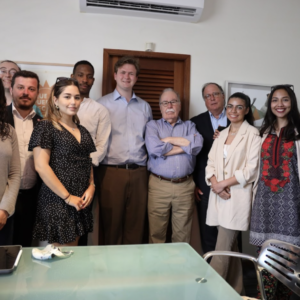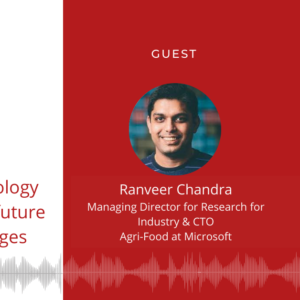-

Policy Proposal: Rooftop Solar for Low – and Moderate- Income Puerto Rican Households
In Spring 2022, IPMF students were challenged with determining the federal, state, municipal, and NGO interventions necessary to enable low- and moderate-income (LMI) households in Puerto Rico–those with an income less than 80% of the Area Median Income–to install and operate rooftop solar systems. More specifically, students chose to assess the policy interventions necessary to provide equitable access to such systems among Puerto Rico’s LMI communities.
Eleven graduate students participated in the 2022 practicum, each pursuing degrees in public administration, regional planning, or engineering. This course consisted of a semester-long immersion in renewable energy and a week in Puerto Rico meeting with public officials, subject matter experts, and NGOs.
-

Episode 29: The Role of Technology in Addressing Future Food Challenges
Shivanshu Sharma, a second-year Master of Public Administration candidate at the Cornell Jeb E. Brooks School of Public Policy, spoke with Dr. Ranveer Chandra, the Managing Director for Research for Industry & CTO of Agri-Food at Microsoft, about the role of technology in addressing future food challenges. Their conversation also touched on Dr. Chandra research… Read more »
-

Psychiatric Boarding: Understanding Incentives between Payers, Providers, and Patients
The mental health system in the United States has historically lacked appropriate care for patients experiencing severe mental illness. During the 1960s, mental healthcare shifted from institutional settings to community-based services [1]. Although this shift gave patients with severe mental illness more autonomy over their care, it led to market forces driving a reduction in psychiatric beds without a parallel increase in support for community services [2]. As such, patients seeking preventative care for severe mental illness face long waitlists for community-based services; instead, these patients divert to ill-equipped emergency departments (EDs) for treatment of acute episodes but likewise wait long periods in hallways or other emergency room areas for an inpatient bed, also known as “boarding.”
Latest




